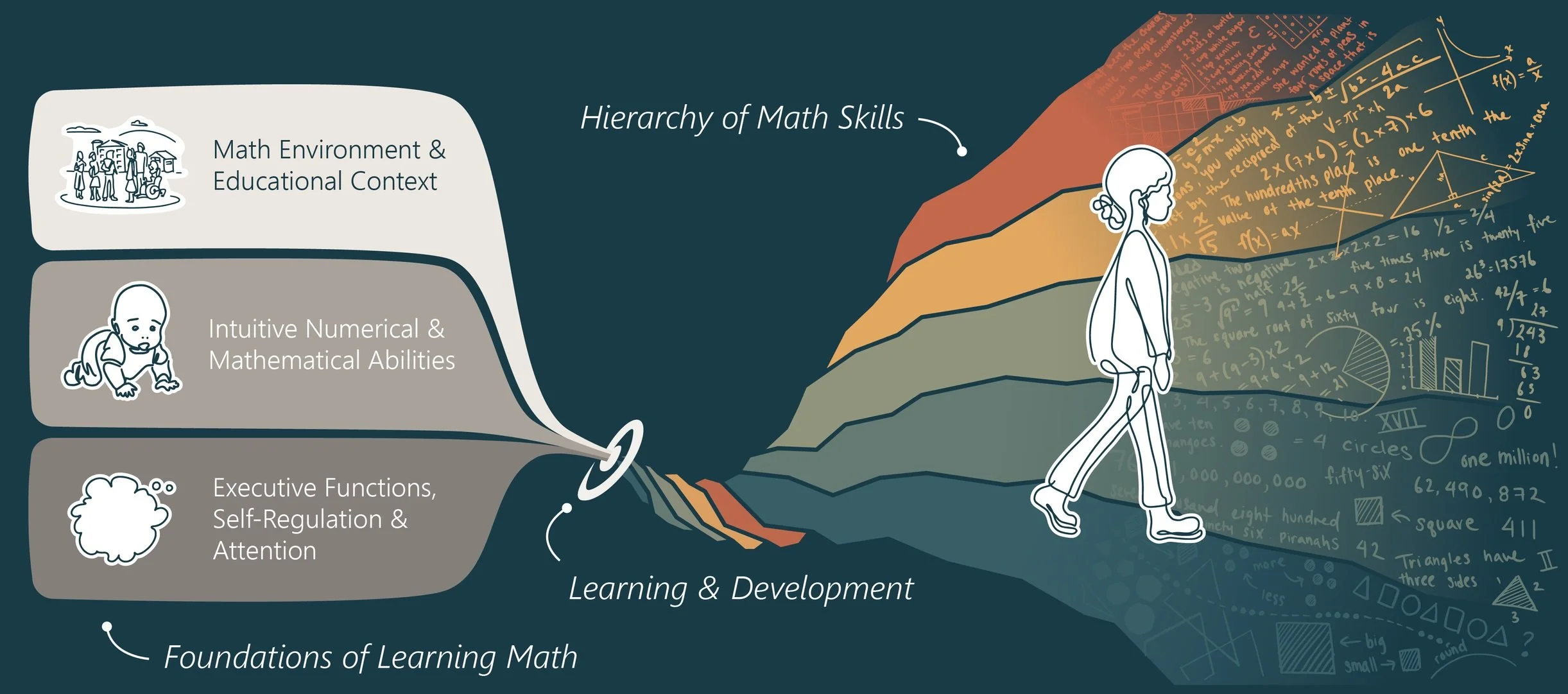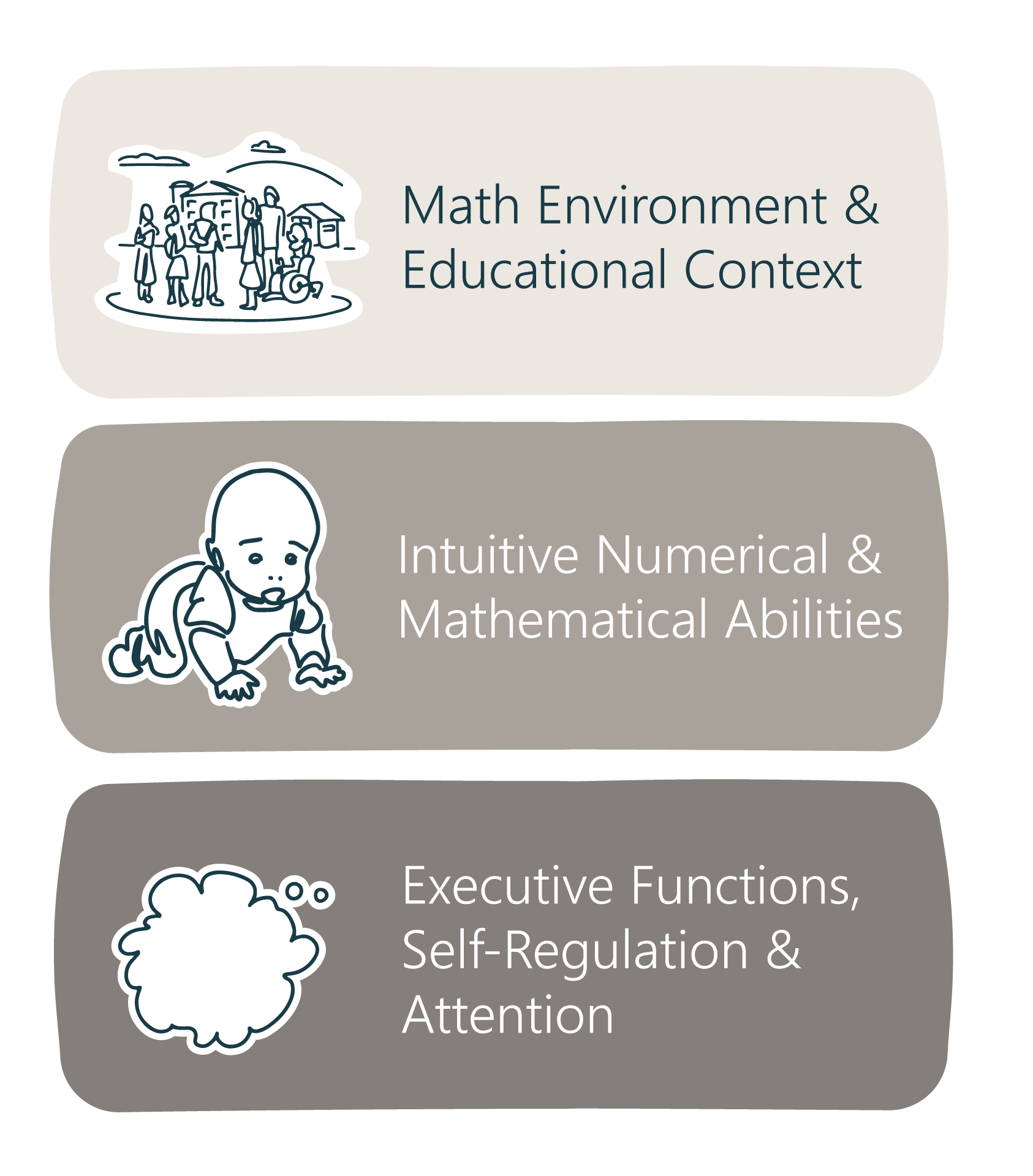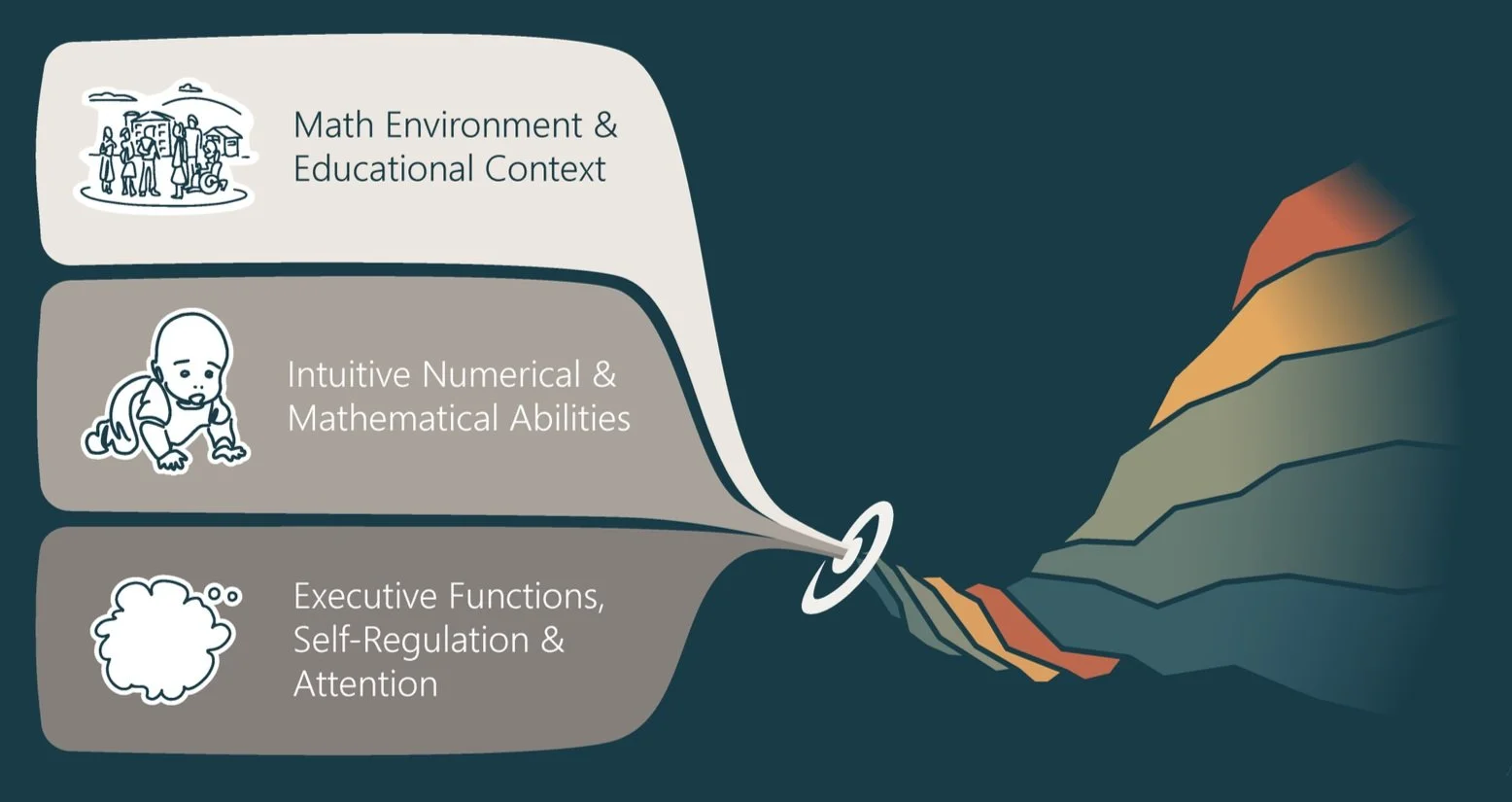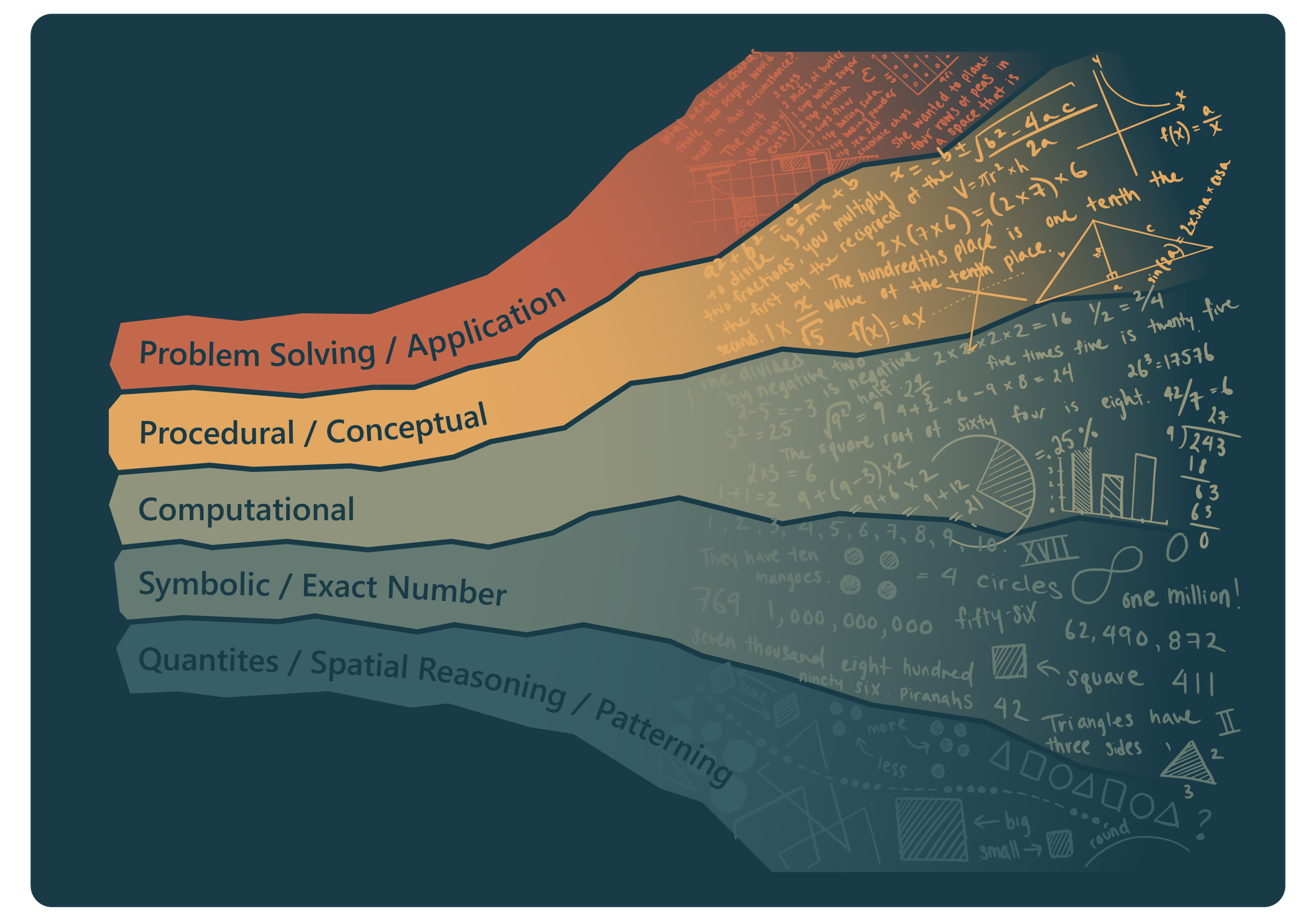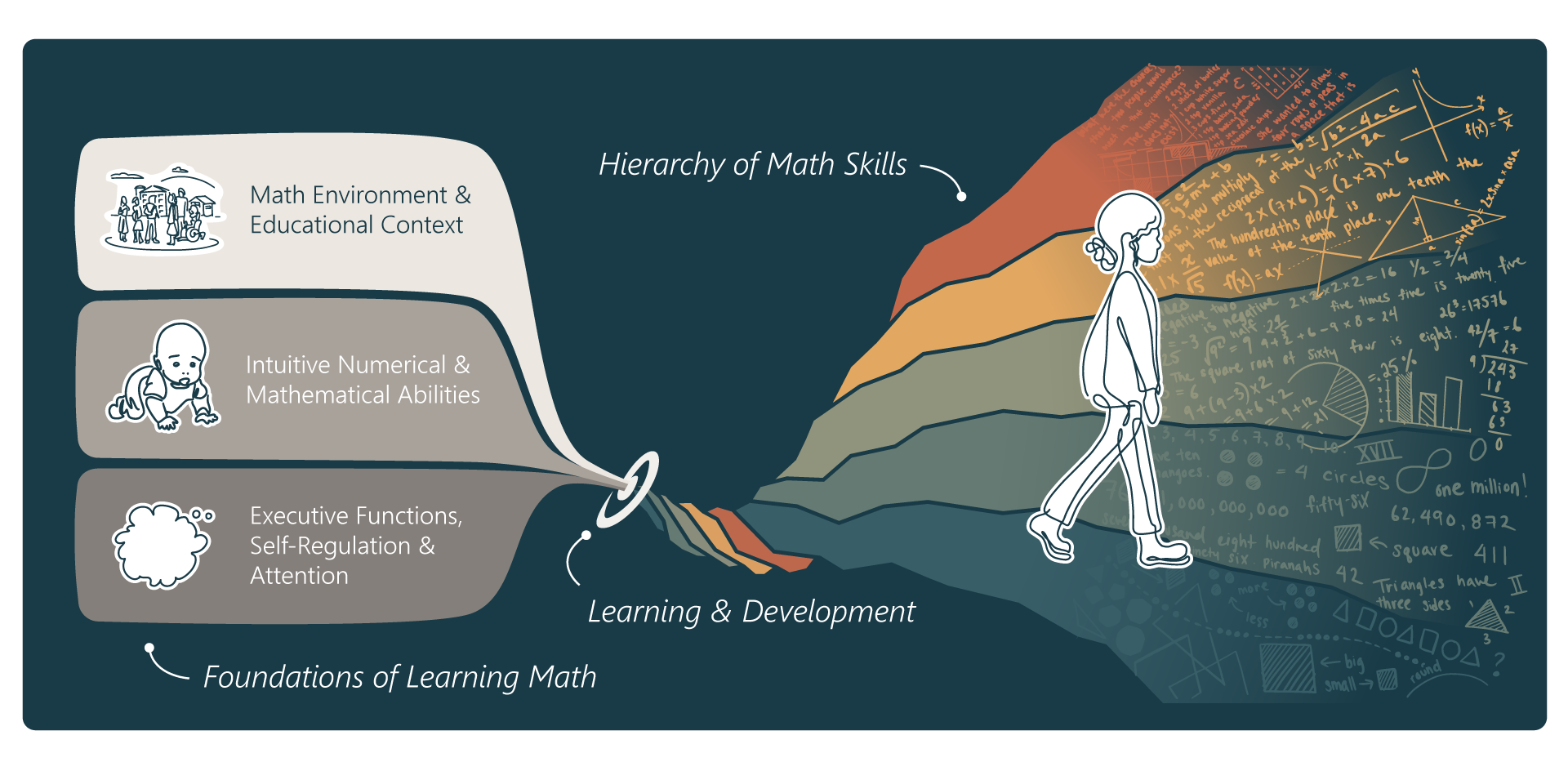Our Research
Each person is born with intuitive numerical and mathematical abilities. Young infants and other animals ranging from bees to fish can perceive and act on numerical information in their environment. Whether it’s the number of berries in a bush that guides a foraging path or a comparison to a sibling to see who has more cookies, numbers and how they work are a fundamental part of our world. When we combine these intuitive skills that come online shortly after birth with the insights about math that our family, community, and school provide to leverage a sophisticated, problem solving tool like the human brain, amazing things happen. Each person has the potential to develop a hierarchy of math skills that empowers them to appreciate and act on the numerical information in their world.
Foundations of Learning Math
The development of math skills relies on a strong foundation at the level of the individual and their environmental context. Each individual combines intuitive numerical and mathematical abilities that come online very early in development (such as estimating the number of items in a set in early infancy) with higher-order cognition that develops over time (like working memory, attention, and self-regulations skills) to accomplish mathematical thinking. This process relies on a supportive environment where children learn language, symbolic numbers, and formal math concepts from their family, community, and schools. Our research focuses on these elements as the foundations of successful math learning.
Learning & Development
These foundational elements are woven together over time through the natural course of development and through formal and informal learning experiences, like school or games. At the Number Lab, we study these processes to understand the successful development of math skills as well as challenges to their development. From less-than-ideal pedagogical approaches to specific issues with critical brain mechanisms that support mathematical thinking, challenges with math can come from many sources.
Hierarchy of Math Skills
The end goal of learning math is to develop a set of mathematical skills to navigate our world. They range from simple numerical concepts, like building a strong sense of quantity, to fluency with computations and arithmetic facts, culminating with a solid understanding of their application in problem solving. This hierarchy of math skills relies on the mastery of many layers of procedural and conceptual knowledge over years of schooling. We study the factors that lead to strong math achievement across the hierarchy of math skills to understand how each individual can achieve their potential to think mathematically.
The Development of Mathematical Thinking
With a strong foundation, each child’s journey of learning and development can result in a hierarchy of math skills that enable them to have agency in their world as mathematical thinkers. From foundations to problem solving, our research aims to understand this developmental process.


